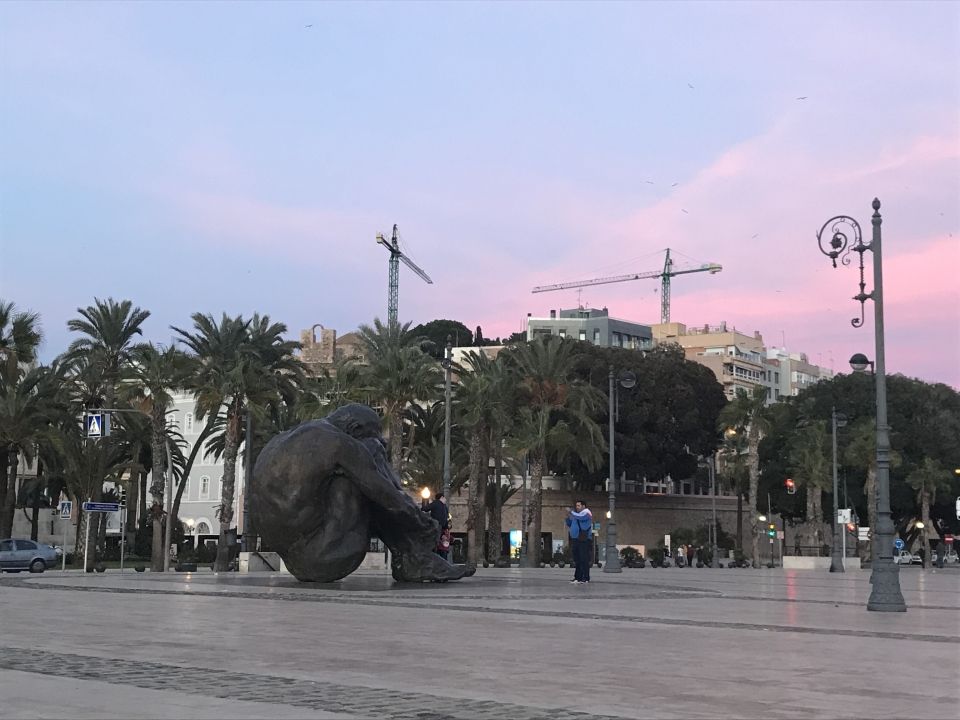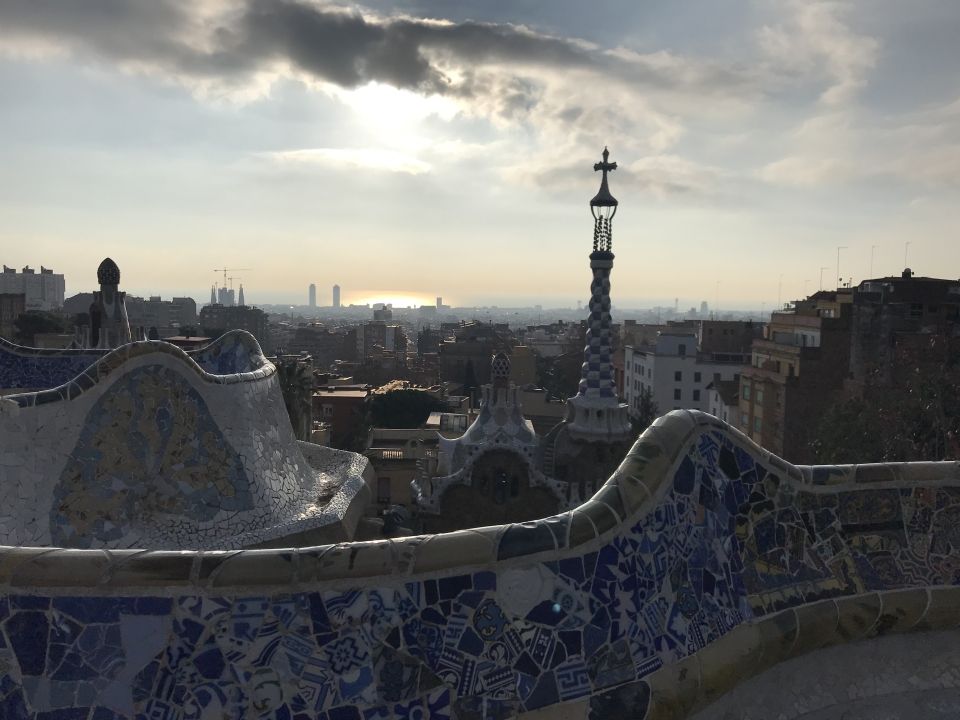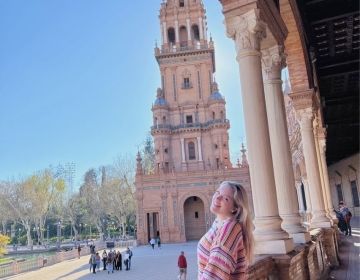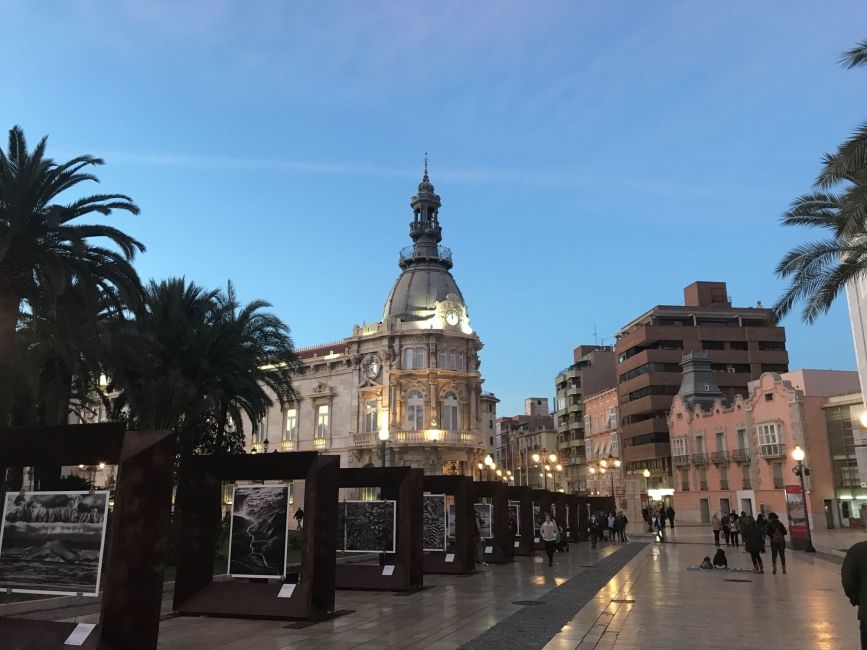Life as a Teaching Assistant in Murcia, Spain: Part 4
Free Time in Cartagena
As a Language Assistant working just fifteen hours per week, I find myself with excessive amounts of free time. Weekly three-day weekends and hours of leisure time on weekdays make for, in my opinion, too much empty space in my schedule. Deciding how to spend those hours has become a challenge that I never thought I would face; I have too much time on my hands.
Picture this: you’re living in a foreign country wherein you aren’t fluent in the language and have very few friends with whom to pass the time. You work for about four hours per day for four days per week, leaving you with ample time to yourself. You may think, “This is great! I have so much time to get things done.” But you then remember that you only get paid €875 per month. You must pay rent, which isn’t nearly as expensive in Murcian cities as it is in more popular places but it nevertheless consumes a significant portion of your monthly living expenses. Grocery expenses can add up as well. You’re left with roughly two-thirds of your monthly stipend once those initial expenses are accounted for. So you have maybe €600, which must last you for an entire month. Leisure time is now, paradoxically, a chore to navigate.

I have found a few ways to fill some of the space in my weekly schedule that have proved productive and fun. They stretch outside of the realm of simply “hanging out with friends” to pass the time. While I still have more free time than I am used to, I’ve found that I am far less bored and broke than I was in my first few months in the Region of Murcia.
One of the first things I did to keep myself a little busier after starting work was sign up for a gym membership. I am a moderately active person, and I enjoy exercising a couple of times throughout the week, so this was something I knew I wanted to do before arriving in Murcia. I found a gym, called Viva Gym, that has a monthly membership fee of €24, and the enrollment fee was waived when I signed up as a part of a promotion the gym had at the time. Viva Gym has locations in cities throughout Spain, which is convenient, especially for people with the more advanced membership. This allows members to use any Viva Gym location when traveling throughout Spain for a slightly higher monthly fee. Because I do not usually make a point to exercise when I travel for weekend getaways, I did not opt for the advanced membership, but the option is there for committed gym-goers. Going to the gym a few times each week allows me to stay active, and it is far enough from my apartment that it takes up a significant amount of time to actually go. Normally this would be a downside of a gym, but because I have so much extra time I don’t mind the distance.
Another way that I use my free time is giving private lessons to students who want extra English practice, which is common practice among EFL teachers abroad. In fact, all auxiliaries that I know in Cartagena give at least one private lesson per week. I was nervous about being able to find private lesson opportunities before I arrived in Murcia, but it turns out that there is an excess of parents and students looking for English tutors. I have seven private lessons that I teach each week for one-hour sessions. Parents of students, and even other teachers, approached me asking me to give their children and them lessons, and my schedule quickly filled up. I am still asked to give lessons, which I now offer to other auxiliaries because I have reached my personal limit of how much time I want to spend giving lessons. Private lessons are great for earning extra money and giving me something to do after my four-hour workday is complete. They also allow me to create my own schedule, fitting lessons around the other activities that I do in my spare time – one of which is my most recent but also favorite pastime that I’ve found in Murcia since arriving.
About two months ago, I started training with the local women’s soccer team in Cartagena, many thanks to my friend from work whose daughter started playing and who took it upon herself to ask the coach if I could try out for the team. After a week-long trial period, I was asked to join the team.
I grew up playing travel soccer in the United States, and although I stopped playing after high school, I have never lost my love of the game. So playing in a country so well known for the sport has been almost unbelievable. I worked it out with the coach so that I only train with the team during the weekdays, as opposed to playing in the weekly matches on weekends. I did this because I travel whenever I can, and I didn’t want to worry about missing a third of the games. Furthermore, I’m content with simply practicing with the team – it keeps me very active, it gives me something to do three times a week, and it allows me to meet local women who are close to my age. This, in itself, has improved my language skills and taught me some of the local slang that I otherwise don’t hear, even at work.

I’m quite lucky that my coworker decided to ask the coach if I could try out for the team in the first place, but I highly recommend that anyone who enjoys playing a sport try to find a local team or recreational league to play with while in Murcia. Playing soccer has done more for me – physically, socially, and emotionally – than anything else that I do in Cartagena. It provides me with an outlet for excess energy; it also allows me to practice speaking Spanish with people from Cartagena. And it is simply something that brings me joy, which is crucial when living over four thousand miles away from family, friends, and familiarity.
Finding things to occupy myself in Cartagena was a challenge for a few months. Until December, right before returning home for the holidays, I had so much time on my hands that I was finishing entire shows on Netflix in record time. I found myself spending more time in my apartment than I like to, which is easy to do in a small city that seems so limited in scope. But I have begun to keep myself active – physically and mentally – by finding activities to fill my schedule. While giving lessons is not necessarily my favorite way to pass the time, it pads my wallet more than just my monthly stipend. Going to the gym takes up time and keeps me strong. Playing soccer makes me happy; it therefore fills a gap in my schedule and provides me with a connection to home, to where I grew up playing soccer and being cheered on by my family (who is even more excited that I’m playing again than I am). I cannot stress the importance of finding ways to energize yourself emotionally as well as physically, because living so far from loved ones proves a daily challenge. Free time, therefore, must be confronted head-on every day. There are ways to prevail, but you have to pursue them.
Related Posts

Welcome to My World
Prior to my recent graduation from Christopher Newport University in Newport News, Virginia I was faced with the daunting question “What’s next?”. As my final spring semester geared up, I... keep reading
Why I Became an Aux and Other Tidbits About Me
Hey there! I’m so excited to blog for CIEE for my last three months in Spain, sharing all the things I’ve learned and places I’ve traveled to during my time... keep reading

Teaching English Online: Teaching That Fits Your Life
Teaching English online has rapidly become one of the best options for English speakers to earn an income online. It's a fun and exciting opportunity that allows you to set... keep reading
